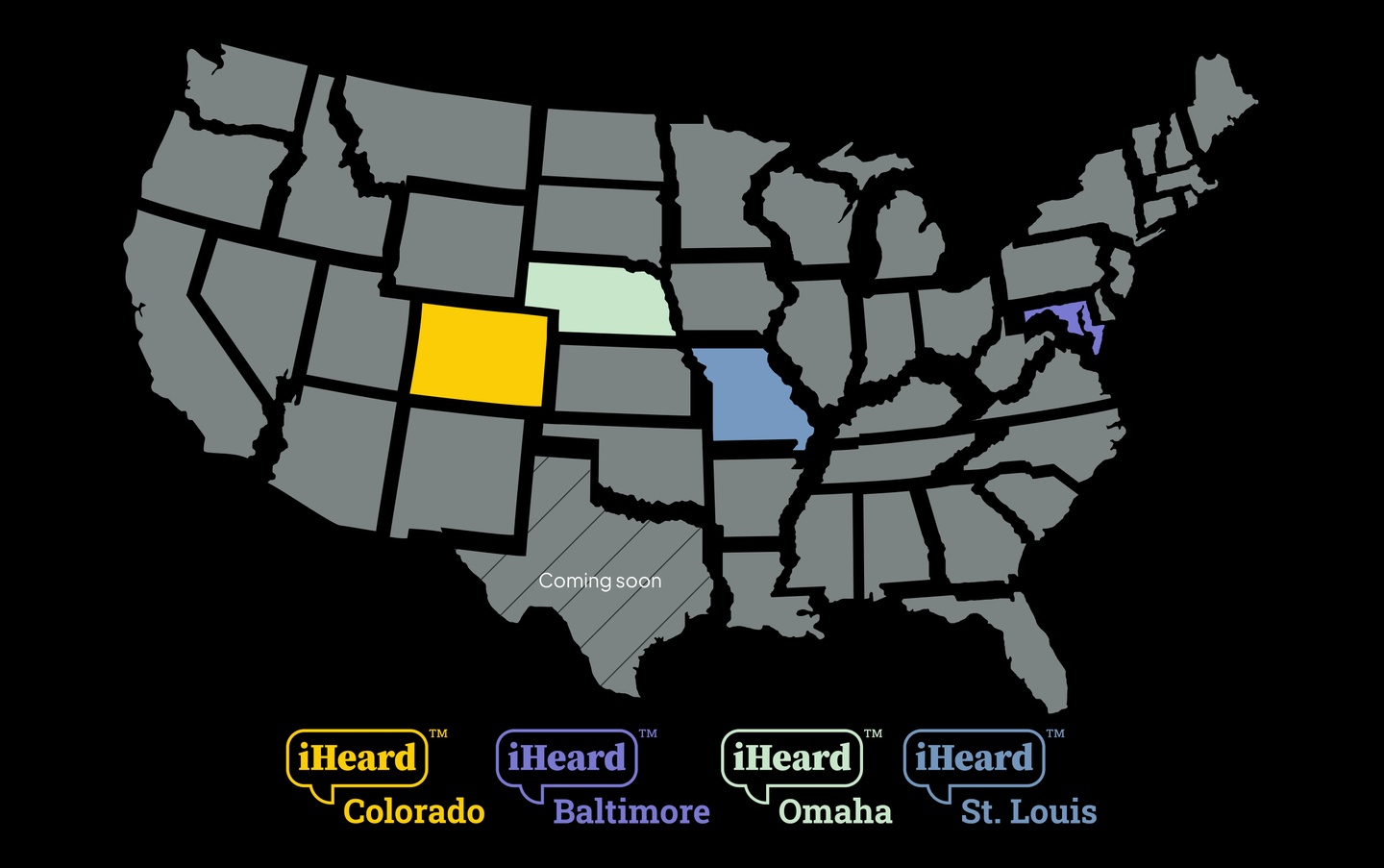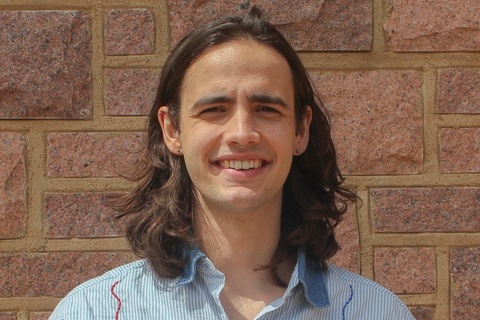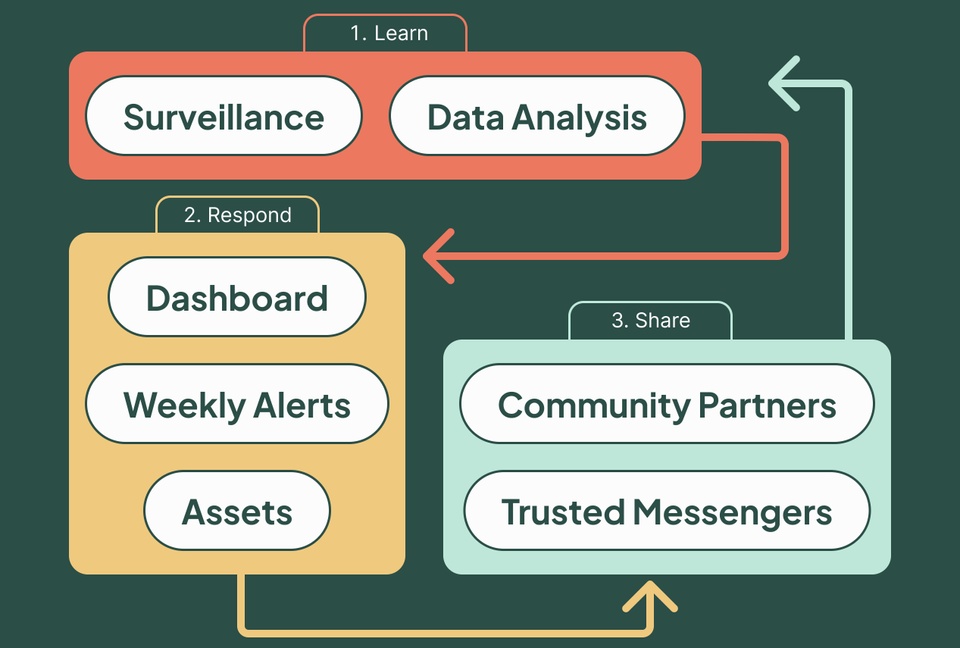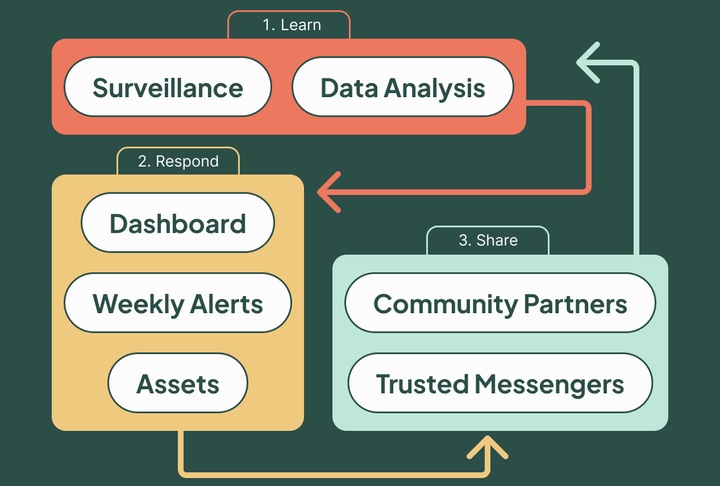iHeard STL
iHeard STL is the nation’s first local tracking and response system for health information.
iHeard aims to build health knowledge in communities and trust in science by sharing timely, accurate health information in a coordinated way through community partners.
Each week, 200+ St. Louis adults are asked what they’ve heard in the last 7 days. We track the spread of health information, and we share results on a public dashboard, send alerts to community partners and local Community Connectors, and post on our social media.
Our Process
Each week—since August 23rd, 2021—we survey a panel of 200 community members to learn what health information they heard, who told them, and if they believed it. After answering these questions – regardless of how they respond – panel members see a brief on-screen explanation of the information.
Our key findings our posted to a public-facing dashboard and sent out in email alerts that are distributed weekly.
The dashboard reports several types of data. Exposure rate is the percentage of respondents who report having heard, read, or seen a specific COVID-19 claim out of the total number of respondents who completed a survey that week.
We create shareable media assets and resources (e.g., flyers, social media posts, illustrations, animated gifs, etc.) that address what health information spreading in the STL community is real and not real. Community Connectors are sent a weekly alert explaining priority health concerns in the community and get access to the iHeard library of resources to help address those concerns.
iHeard Tenets
iHeard is first and foremost a community-based and community-driven project, and we prioritize the needs and feedback of our partners and community members.
Our ultimate objective is to increase trust in accurate information and to help the St. Louis community to make informed decisions about their health and well-being.
Building public awareness and understanding of health and science is a fundamental goal.
iHeard acknowledges uncertainty and strives to be transparent in our content and communication.
We are committed to learning and responding to what our community is hearing and talking about. We do this via weekly surveys, analyzing this data immediately and reporting our findings through multiple avenues: weekly alerts, a public-facing dashboard, and shareable digital and print resources.
We are committed to providing up-to-date health knowledge as it becomes available and issuing timely retractions and updates if and when they are needed.
We aim to provide concise, informative and actionable content that is easy to understand and can be applied to daily life.
iHeard is open to evolving our content and approaches, and we are willing to try new things to better serve our community.
We endeavor to be an accessible resource through plain wording, use of multiple languages if and when appropriate, and the adoption of a tone that is in tune with our audience and the community at large. We are currently working towards ensuring 508 compliance of all public-facing components of iHeard.
Key Terms
Community Connectors
Community Connectors are local individuals and organizations that are widely recognized and credible to community members and have an established platform to reach large numbers of community members.
iHeard supports Community Connectors by sharing accurate health information and resources to respond.
Community Connectors receive weekly alerts and access to a library of resources to use in health education and outreach.
CEAL
The Community Engagement Alliance (CEAL) Against COVID-19 Disparities works closely with the communities hit hardest by COVID-19. CEAL is an NIH effort co-led by the National Heart, Lung, and Blood Institute (NHLBI) and the National Institute on Minority Health and Health Disparities (NIMHD).
iHeard is funded by CEAL and there are multiple CEAL Teams throughout the United States. Current teams include: Alabama, Arizona, Arkansas, California, Colorado, DC/Maryland/Virginia, Florida, Georgia, Illinois, Louisiana, Massachusetts, Michigan, Mississippi, Missouri, New Mexico, New York, North Carolina, Pennsylvania, Puerto Rico, Tennessee, and Texas
We are a part of the Missouri CEAL (MO-CEAL) Team and Matthew Kreuter, Ph.D., M.P.H. is the Principal Investigator. As we expand iHeard, CEAL Teams will be joining iHeard as a new local site, or subsite.
Visual Resources
Resources are media graphics that include a variety of content, from illustrations and data visualization to more text-based subject matter. The design team utilizes multiple different formats, from static posts to videos and animations, to share information with the public.
Examples include social media resources such as Instagram carousel posts or stories, Twitter posts, and video reels. Print resources might include informational flyers, brochures and postcards.
Dashboard Design Iterations
Our design process is adaptive. The main goal of the dashboard is the share new and spreading health misinformation with local leaders and the public in real time.

Our Design Team

Alex Kohl
UX/UI Designer

Penina Acayo Laker
Director

Christine Watridge
Program Coordinator

Michaela Kroner
Graphic Designer

Izzy Williams
Graphic Designer

Matt Grossman
Student Designer

Sydney Tran
Student Designer

Nicole Chen
Student Researcher
Other team members include Claire Wild ('21), Sasha Kostenko ('23), Layla Lee Choi ('23), Lu Gillespie ('21), Nina Crosby Walton ('22), Allison Fong ('23)












